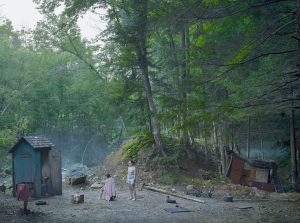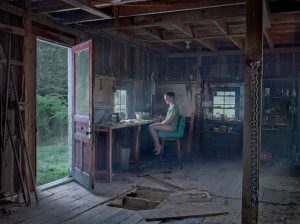I interpreted Maria Elena Cruz Varela’s poem “Love Song for Difficult Times” not as a poem addressed to a person, but to her country. As can be read in the biography listed before the poems, Cruz Varela was beaten and imprisoned for publishing a manifest against the Castro regime. She wrote, “Here I am: forty-one years old, my spinal column damaged as a result of the events of November 19, 1991; an irreversible vitamin deficiency, acquired in prison; and an anxiety for my compatriots that does not leave me night or day. And over there is my country, an improbable raft in the middle of the ocean, waiting for a sign of hope before the inevitable shipwreck, trying to hear a coherent voice beyond the stale ideologies” (583). Here we can see that Cruz Varela cares about Cuba and wants it to be improved, despite what happened to her.
We can also see these feelings in “Love Song for Difficult Times.” She writes, “So hard to say I love you these days. / I love you with urgency. I want to make a side. / Without doubts. And without traps. /To say I love you. Like that. Plainly” (584). Here, Varela Cruz finds it difficult to love her country because of the horrible things that happened to her and to other citizens. Later, she writes, “If one man. And another man. And again another. And another. / Destroy the spaces where love is kept. / If it weren’t hard. Hard and tremendous. / If it weren’t impossible to forget this rage” (584). In these lines, Varela Cruz shows that the government (the men in the poem) are the reason she cannot love Cuba the way she wants to. They destroy everything good and turn the country into a place in which the citizens live in fear and cannot express themselves. Varela Cruz wants to love the country, but the rage she feels because of the government prevents her from doing so.






